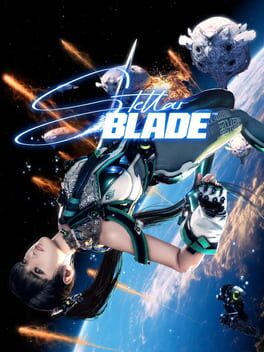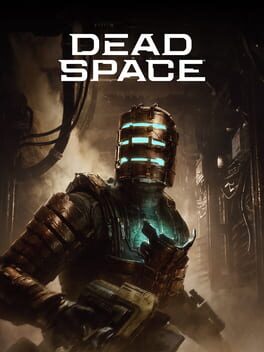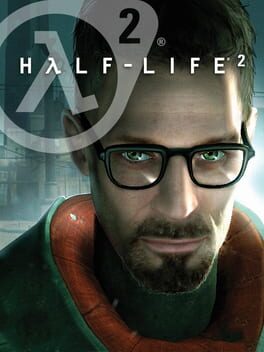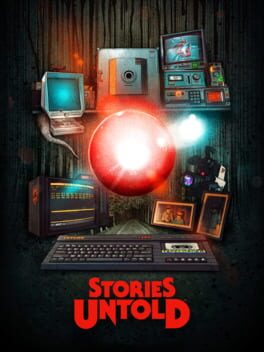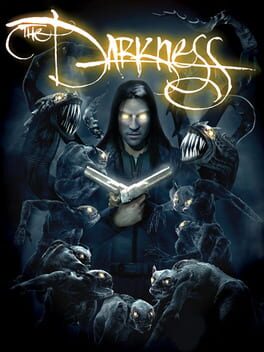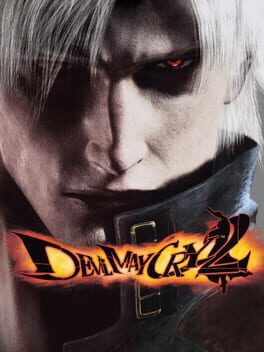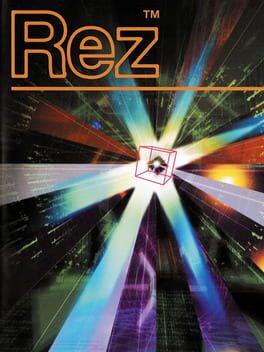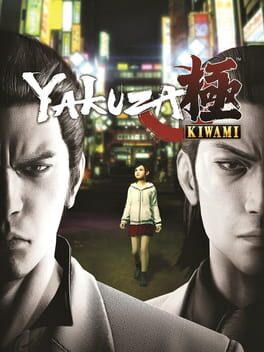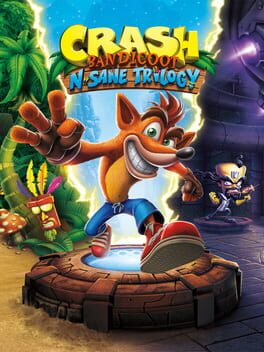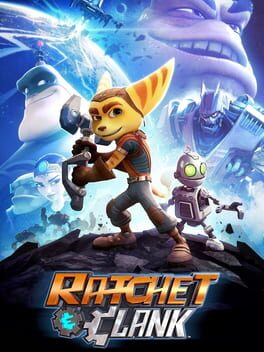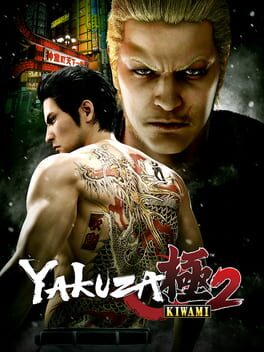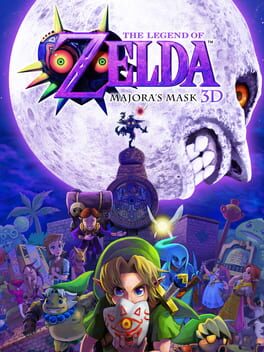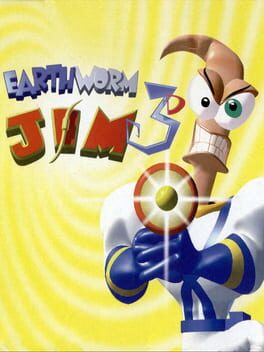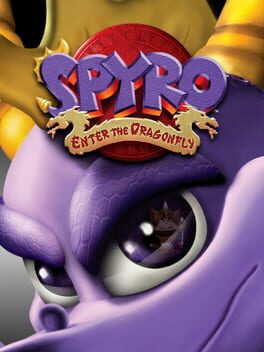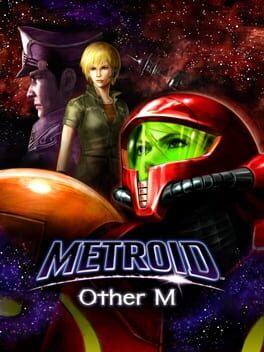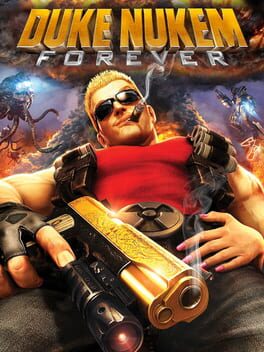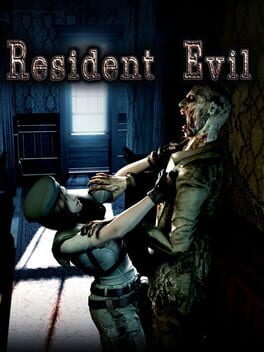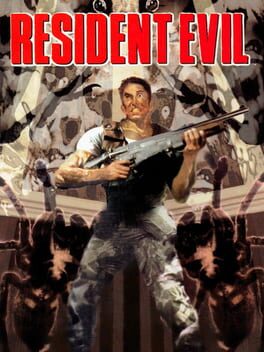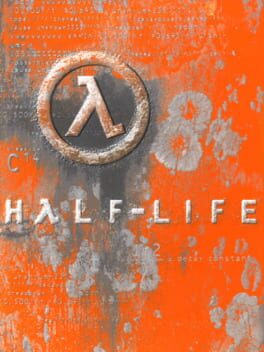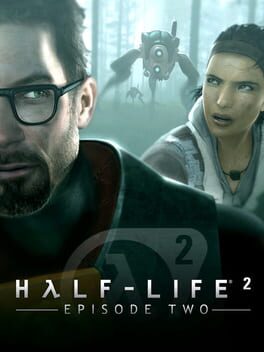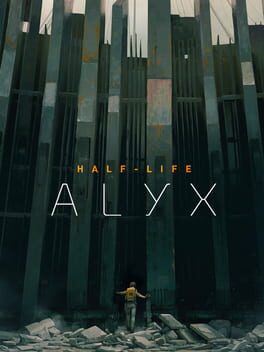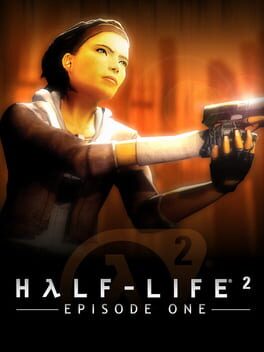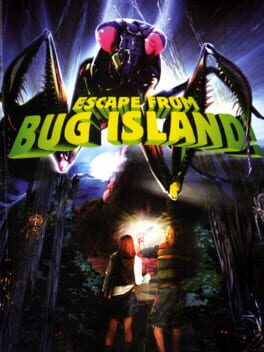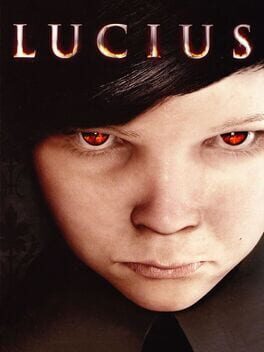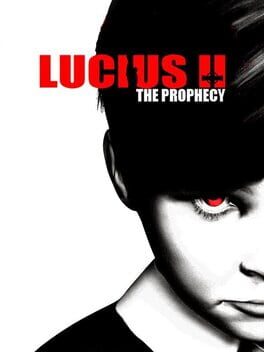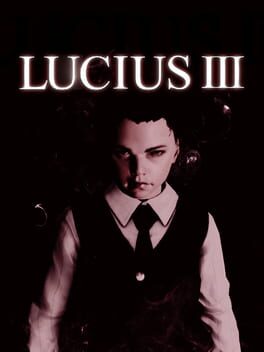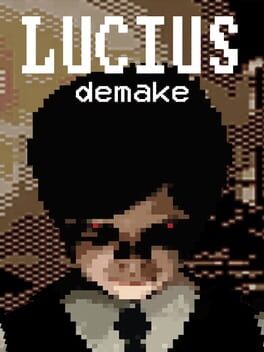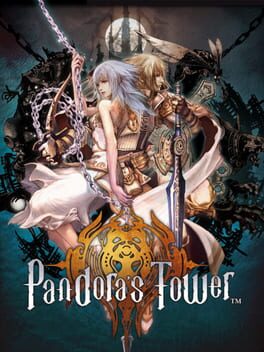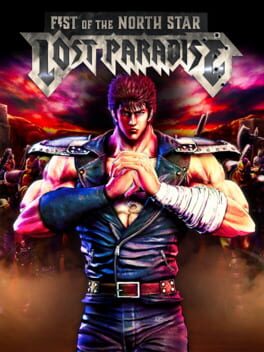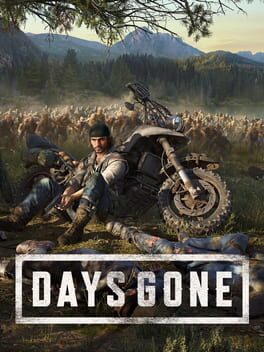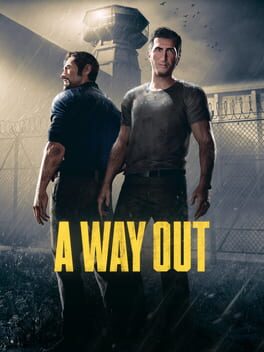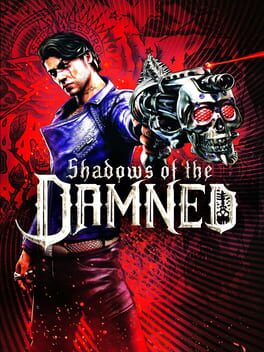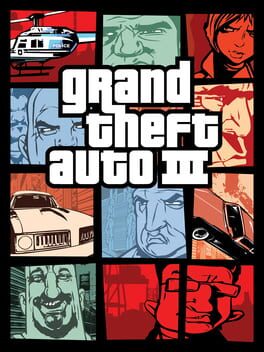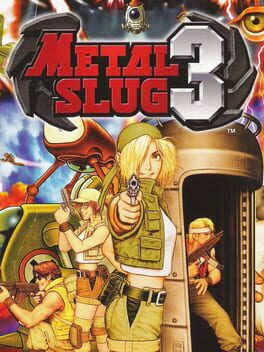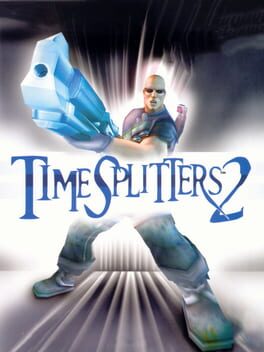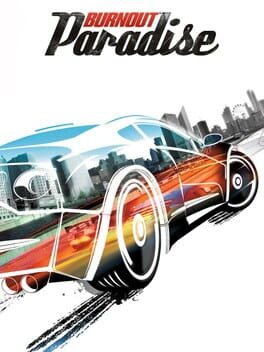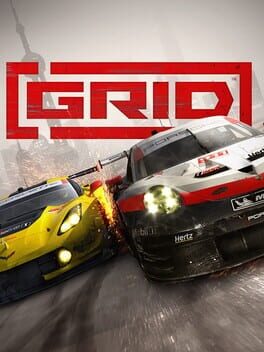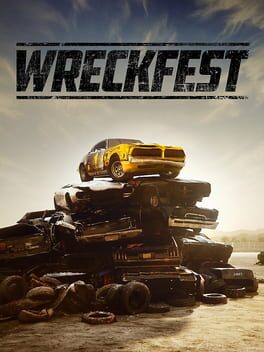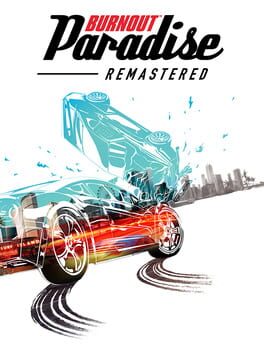Moepo
440 reviews liked by Moepo
Stellar Blade
2024
Dead Space
2023
I always wanted to play the original Dead Space, but I thought that its animations were too good and the gameplay felt too satisfying. Thankfully, this remake decides to overhaul those prior issues: Isaac and the enemies now slide around the Ishimura like they're on skates; the guns mostly just flash bright lights at the necromorphs until they remember that they're supposed to have their limbs fly off; and they added raytracing. Now I can enjoy Dead Space the way that Visceral always intended. Thank you, EA!
It’s okay when FromSoft does it.
Sekiro is guilty of everything that its staunchest defenders attack other games for. An unforgivably bad camera, bosses with surprise second phases, dreadfully simple and overpowered parrying, a near-complete lack of depth both artistically and mechanically, and a thematic retread of what the studio has been doing for fifteen years now all culminates to create something that can peak at the heights of interesting but mostly just lingers in the trenches of bland.
I knew that I wasn’t going to like Sekiro about an hour into it, but I also knew that it would be incredibly easy for someone to point out that I'm a quitter and say that I just didn’t like it because I was bad at the game. You get that a lot, with FromSoft’s titles: the implication being that the difficulty is the sole reason why anyone could ever dislike it. Set aside the red-headed stepchildren that are titles like Dark Souls II and Dark Souls III, where the premier Soulsheads are often pretty harsh on them, and look instead to the darlings like Bloodborne, and Elden Ring, and Sekiro. There are a certain amount of criticisms that you’re allowed to make — farming for blood vials or spirit emblems is boring, certain builds or weapons are imbalanced compared to others — but start pointing out flaws in the underlying systems themselves, and watch the wagons get circled as you’re told that you just need to git gud to appreciate them. I’ll outline what I disliked about the game itself in a bit, but all of this preamble is required to explain why I felt so compelled to finish Sekiro, in the hopes that it’d allow me to speak with some degree of authority.
I have to wonder if Hidetaka Miyazaki ever feels like Victor Frankenstein looking at the monster he's created. The ethos of the earliest Souls games were largely about strangers coming together to overcome the challenges imposed by the brutal and uncaring world they inhabited. Miyazaki famously said that he was inspired by an icy road on a hill that he needed a stranger's help to get over, and that he himself also helped a stranger get over; it was "a connection of mutual assistance between transient people", he said, because he couldn't stick around to thank them or else he'd get stuck again. This laid the foundations not just for the jolly co-operation summons of the original Dark Souls, but certainly reflected players on a more meta level, as well. We're all transient people to one another online, and we'll talk about these games for tips and guides and then dip out to take on the challenges with new information, often to never hear from the other players again. We get what we can and give what we're able.
Yet there's been an inarguable change, I feel, in the way that fans of the newest games talk about them. The seeds were certainly first sown with the whole "PREPARE TO DIE" garbage from the western Dark Souls marketing campaign, but there's been a marked shift in the way that people discuss these games. Complain that it's too hard, and you'll now immediately be met with derision instead of advice: well, you're just bad, you need to git gud, you just don't get it. God help you if you decide to drop the game because you're not having fun. There's no faster way to prove that you're a casual who hasn't earned the right to talk about it. Sekiro discussion in particular is especially noxious, with the community that exists today largely believing that anyone who has any complaints whatsoever is just mad because bad. Even if you beat the game, complaining about it is unjustified because you're actually still bad. If you were good, you would have liked it. Your complaints are because you're bad, thus they're invalid; any praise must then be because you're good, and thus valid. I complained about the shitty camera to a friend and he immediately shot back that it was my fault for being near a wall, and that it's actually intended behavior for it to fuck up near terrain because it'll push clever players to the middle of rooms where they'll be safer. This is the level of discourse we're operating at here. A decade and a half of making these third-person action-adventure games and they still can't fix the fucking cameras, but it's actually because they're playing 4D chess against the player. Can you imagine anything else getting this much leniency?
The camera is really the thing I want to hammer home as the worst element here, because it alone has killed me more than any other enemy in the game. I don’t know how FromSoft still haven’t figured this out. I intentionally sped through most of the game, skipping a lot of the optional content primarily just because I wanted to roll credits, and even most of the mandatory bosses introduced new problems with the camera. Guardian Ape would throw me into a wall that the camera couldn’t phase through, which meant that it tried to go for a birds-eye view and got me killed because I couldn’t see what was happening in time to block the follow-up; Summoner Monk similarly backed me into a wall and brought us both so close to the camera that our models turned invisible and I had to guess what the pattern was, effectively with my eyes closed; Sword Saint Isshin’s Phase 2 jumping attack would break the lock-on whenever I dodged under it, because the camera couldn’t keep up with where he was going. Mini-bosses like the Lone Shadow Longswordsman and the Lone Shadow Vilehand would similarly eat the camera with some of their dashing moves, and bounding off the head of the latter after dodging his sweep caused the camera to get stuck in the ceiling so hard that it started flashing Electric Soldier Porygon at me for a few seconds until it freed itself. It’s so blatantly wrong that I’m astonished both that it made it to production in the state that it’s in and that it isn’t a complete dealbreaker for significantly more people than it is.
I mentioned to another friend that I was having some trouble with Owl and that I was going to call it quits for the night there, and he excitedly mentioned that Owl had his favorite boss theme in the game. It was at this exact moment that I realized that I couldn’t actually recall a single track from the entire ten or so hours I had played up to that point. Even after rolling credits, I still don’t remember anything aside from the fact that I thought Divine Dragon had a cool theme. Music is constantly playing over every sequence of the game, ambient tracks and combat tracks alike; if you aggro an enemy, kill them, and then immediately aggro another, the combat track will start, fade out, and then start from the beginning again. Moving through an area to quickly cut down enemies who don’t alert the others when they aggro can make the combat track start itself over what I managed to get about five times in a row. It’s kind of funny in how sloppy it is.
The narrative is dreck, of course, and I doubt anyone was expecting much different. It’s the same story FromSoft has been telling for years now — unnatural life and resurrection, it’s all cyclical, you can choose to either break the cycle or keep it going, blah blah blah — with the added twist of “honor culture is actually dishonorable”, which has been massively oversaturated for longer than anyone reading this has been alive, and Sekiro has absolutely nothing interesting to add to the conversation. It’s certainly present. Owl shows up after seemingly dying, decides to be evil, actually dies unceremoniously, and the game just kind of moves along without really being interested in how or why any of that happened. I’ve seen praise for the story, and I can’t honestly believe that anyone is cheering this on. This is the fourth time FromSoft has shown that time is a flat circle in class, and the irony of how they keep doing it over and over again is really kind of giving me a kick as I type it out. You certainly can’t say they don’t believe in it.
Souls combat was never mechanically deep, but made up for it predominately just by giving you a lot of options. Sekiro throws this out in favor of exclusively allowing the player to play as a squishy, dex-based katana-wielder who dies in two hits on a good day and has to perfect parry the world or be crushed beneath it. I respect, in a way, the sheer commitment to this singular playstyle, but I also don’t think there’s any depth here to actually make me want to play this over any other similar action game. You get a parry and you get some basic sword swings, and if you’re a really good boy, you get to do Ichimonji Double. The actual parrying itself is ridiculously forgiving, and you’ll just end up psyching yourself out if you read online that spamming it will reduce your parry window to about seven frames; it’s active for so long and you’re actionable again so quickly after you use it that you’re in no real danger so long as you just keep hammering away at L1 fast enough. The fact that this got a port for the Stadia — with its inherent input lag that you can count in geologic time — should indicate how core these so-called “strict reaction times” actually are. What you’re left with once you get past that mental barrier is a game where you hit R1 until orange sparks fly, hit L1 until orange sparks stop flying, and then repeat the process from the start. When the kanji for danger occasionally appears, you get to hit either the jump button or the dash button. It is fucking boring. I managed to no-hit all three phases of Isshin not because I had downloaded him and completely figured out a perfect counter for every single one of his combos, but because his AI broke and he kept spamming the thrust attack in Phase 2 and the lightning sweep in Phase 3. I was getting rolled before that, because he was actually using his entire arsenal. I didn’t outskill him, I just got lucky that he kept picking the exact same attack over and over again. It’s like I got double-perfected by a world-class Zangief player and then in game two he just sat in neutral and spammed SPD. Sure, I’ll take the win, but it’s not because I earned it. I didn’t win, he just lost. Sekiro occupies an incredibly awkward middle ground between something slow and simple like Dark Souls and something fast and complex like Devil May Cry or Bayonetta. The game is instead fast and simple, and I can’t think of anything that is less for me.
Speaking of, I think FromSoft has indicated with their last few releases that they’re no longer interested in catering to players like me. That’s fine. I say this with my teeth gritted and steam coming out of my ears, but, really, it is fine. They’ve clearly found a new audience who loves them dearly, and every new game they put out sells millions of copies and sweeps the Game of the Year awards from every publication giving them out. This beat Death Stranding and Resident Evil 2 at The Game Awards! It’s the fifth highest-rated game on Backloggd of all time! It’s sold over ten million copies as of September of this year! Clearly I’m the odd man out, here. What use is it even to complain? What reason would they have to listen?
I’ve been getting this sort-of old man doom sense lately — not just for game discussion, mind, but for a lot of things — about how saying what you feel about something doesn’t actually accomplish anything if you’re not in a position of power to change it. It’s got a purpose to just let others know how you feel about any given topic, but what does it actually do? If I find a group of like-minded individuals who think I nailed it with this review and agree that FromSoft ought to return to the good old days where they made shitty, clunky games that launched blatantly unfinished, what does that accomplish? If a group of Sekiro fans come in and dunk on me for just not understanding the game, what does that accomplish? I put myself through the ringer beating a twenty hour-long game that I hated, and for what? So that I’d be more credible when I said it was a pile of shit? What does that accomplish, then, when someone comes in and says that beating the game doesn’t mean anything and I’m still bad and that’s the only reason I hated it? Without anyone involved actually being in a position to change anything, what use is discussing it at all?
A large part of what bothers me is that I don't feel I've really gotten anything I value from my time with Sekiro. It's not just because of the difficulty; I do plenty of difficult things, play plenty of difficult games, and it's all given me something I value. Every piece I write makes me feel like I'm a little bit better at writing, and it helps me appreciate the writing of others more. Every fighting game I play tends to have wildly differing mechanics between them, but the fundamentals of squaring off against another player are transferable. Every song I compose makes me feel like I've got a deeper understanding of music. What I get from playing Sekiro is that I'm now better at Sekiro, which is a game I have no desire to ever touch again. There's hardly anything that plays quite like this — which is a massive point of support for those who love it — so I may as well have gotten nothing for all my time spent. There's nothing wrong with what I'll affectionately call "junk media", where there's no value to the piece besides what you feel in the exact moments where you're actively experiencing it, but you'd hope that what you feel is a sense of fun or reward. I felt neither from Sekiro. I thought it was boring, and it didn't give me anything I value. I could have gone to work and felt equally bored and unfulfilled, but at least work pays me.
It’s telling that the parts that I thought were most interesting — the Divine Dragon, the Armored Knight — are the parts that either go completely overlooked or disparaged by the broader fanbase. There’s a clear disconnect between me, this game, and everyone else. People all over the place online said to keep playing until the combat clicks, and that’s when you start having fun. I felt the combat click, and I felt bored. People said to play until Genichiro before you say you don’t like it, and I beat Genichiro and was still bored. People said you can’t call the game bad if you haven’t beaten it, and I have, and I still think it’s bad. Do I have the right to dislike it yet, or is there still something that I’ve missed?
Seeing a monkey in a conical hat firing a rifle was almost enough for me to justify giving this five stars.
Sekiro is guilty of everything that its staunchest defenders attack other games for. An unforgivably bad camera, bosses with surprise second phases, dreadfully simple and overpowered parrying, a near-complete lack of depth both artistically and mechanically, and a thematic retread of what the studio has been doing for fifteen years now all culminates to create something that can peak at the heights of interesting but mostly just lingers in the trenches of bland.
I knew that I wasn’t going to like Sekiro about an hour into it, but I also knew that it would be incredibly easy for someone to point out that I'm a quitter and say that I just didn’t like it because I was bad at the game. You get that a lot, with FromSoft’s titles: the implication being that the difficulty is the sole reason why anyone could ever dislike it. Set aside the red-headed stepchildren that are titles like Dark Souls II and Dark Souls III, where the premier Soulsheads are often pretty harsh on them, and look instead to the darlings like Bloodborne, and Elden Ring, and Sekiro. There are a certain amount of criticisms that you’re allowed to make — farming for blood vials or spirit emblems is boring, certain builds or weapons are imbalanced compared to others — but start pointing out flaws in the underlying systems themselves, and watch the wagons get circled as you’re told that you just need to git gud to appreciate them. I’ll outline what I disliked about the game itself in a bit, but all of this preamble is required to explain why I felt so compelled to finish Sekiro, in the hopes that it’d allow me to speak with some degree of authority.
I have to wonder if Hidetaka Miyazaki ever feels like Victor Frankenstein looking at the monster he's created. The ethos of the earliest Souls games were largely about strangers coming together to overcome the challenges imposed by the brutal and uncaring world they inhabited. Miyazaki famously said that he was inspired by an icy road on a hill that he needed a stranger's help to get over, and that he himself also helped a stranger get over; it was "a connection of mutual assistance between transient people", he said, because he couldn't stick around to thank them or else he'd get stuck again. This laid the foundations not just for the jolly co-operation summons of the original Dark Souls, but certainly reflected players on a more meta level, as well. We're all transient people to one another online, and we'll talk about these games for tips and guides and then dip out to take on the challenges with new information, often to never hear from the other players again. We get what we can and give what we're able.
Yet there's been an inarguable change, I feel, in the way that fans of the newest games talk about them. The seeds were certainly first sown with the whole "PREPARE TO DIE" garbage from the western Dark Souls marketing campaign, but there's been a marked shift in the way that people discuss these games. Complain that it's too hard, and you'll now immediately be met with derision instead of advice: well, you're just bad, you need to git gud, you just don't get it. God help you if you decide to drop the game because you're not having fun. There's no faster way to prove that you're a casual who hasn't earned the right to talk about it. Sekiro discussion in particular is especially noxious, with the community that exists today largely believing that anyone who has any complaints whatsoever is just mad because bad. Even if you beat the game, complaining about it is unjustified because you're actually still bad. If you were good, you would have liked it. Your complaints are because you're bad, thus they're invalid; any praise must then be because you're good, and thus valid. I complained about the shitty camera to a friend and he immediately shot back that it was my fault for being near a wall, and that it's actually intended behavior for it to fuck up near terrain because it'll push clever players to the middle of rooms where they'll be safer. This is the level of discourse we're operating at here. A decade and a half of making these third-person action-adventure games and they still can't fix the fucking cameras, but it's actually because they're playing 4D chess against the player. Can you imagine anything else getting this much leniency?
The camera is really the thing I want to hammer home as the worst element here, because it alone has killed me more than any other enemy in the game. I don’t know how FromSoft still haven’t figured this out. I intentionally sped through most of the game, skipping a lot of the optional content primarily just because I wanted to roll credits, and even most of the mandatory bosses introduced new problems with the camera. Guardian Ape would throw me into a wall that the camera couldn’t phase through, which meant that it tried to go for a birds-eye view and got me killed because I couldn’t see what was happening in time to block the follow-up; Summoner Monk similarly backed me into a wall and brought us both so close to the camera that our models turned invisible and I had to guess what the pattern was, effectively with my eyes closed; Sword Saint Isshin’s Phase 2 jumping attack would break the lock-on whenever I dodged under it, because the camera couldn’t keep up with where he was going. Mini-bosses like the Lone Shadow Longswordsman and the Lone Shadow Vilehand would similarly eat the camera with some of their dashing moves, and bounding off the head of the latter after dodging his sweep caused the camera to get stuck in the ceiling so hard that it started flashing Electric Soldier Porygon at me for a few seconds until it freed itself. It’s so blatantly wrong that I’m astonished both that it made it to production in the state that it’s in and that it isn’t a complete dealbreaker for significantly more people than it is.
I mentioned to another friend that I was having some trouble with Owl and that I was going to call it quits for the night there, and he excitedly mentioned that Owl had his favorite boss theme in the game. It was at this exact moment that I realized that I couldn’t actually recall a single track from the entire ten or so hours I had played up to that point. Even after rolling credits, I still don’t remember anything aside from the fact that I thought Divine Dragon had a cool theme. Music is constantly playing over every sequence of the game, ambient tracks and combat tracks alike; if you aggro an enemy, kill them, and then immediately aggro another, the combat track will start, fade out, and then start from the beginning again. Moving through an area to quickly cut down enemies who don’t alert the others when they aggro can make the combat track start itself over what I managed to get about five times in a row. It’s kind of funny in how sloppy it is.
The narrative is dreck, of course, and I doubt anyone was expecting much different. It’s the same story FromSoft has been telling for years now — unnatural life and resurrection, it’s all cyclical, you can choose to either break the cycle or keep it going, blah blah blah — with the added twist of “honor culture is actually dishonorable”, which has been massively oversaturated for longer than anyone reading this has been alive, and Sekiro has absolutely nothing interesting to add to the conversation. It’s certainly present. Owl shows up after seemingly dying, decides to be evil, actually dies unceremoniously, and the game just kind of moves along without really being interested in how or why any of that happened. I’ve seen praise for the story, and I can’t honestly believe that anyone is cheering this on. This is the fourth time FromSoft has shown that time is a flat circle in class, and the irony of how they keep doing it over and over again is really kind of giving me a kick as I type it out. You certainly can’t say they don’t believe in it.
Souls combat was never mechanically deep, but made up for it predominately just by giving you a lot of options. Sekiro throws this out in favor of exclusively allowing the player to play as a squishy, dex-based katana-wielder who dies in two hits on a good day and has to perfect parry the world or be crushed beneath it. I respect, in a way, the sheer commitment to this singular playstyle, but I also don’t think there’s any depth here to actually make me want to play this over any other similar action game. You get a parry and you get some basic sword swings, and if you’re a really good boy, you get to do Ichimonji Double. The actual parrying itself is ridiculously forgiving, and you’ll just end up psyching yourself out if you read online that spamming it will reduce your parry window to about seven frames; it’s active for so long and you’re actionable again so quickly after you use it that you’re in no real danger so long as you just keep hammering away at L1 fast enough. The fact that this got a port for the Stadia — with its inherent input lag that you can count in geologic time — should indicate how core these so-called “strict reaction times” actually are. What you’re left with once you get past that mental barrier is a game where you hit R1 until orange sparks fly, hit L1 until orange sparks stop flying, and then repeat the process from the start. When the kanji for danger occasionally appears, you get to hit either the jump button or the dash button. It is fucking boring. I managed to no-hit all three phases of Isshin not because I had downloaded him and completely figured out a perfect counter for every single one of his combos, but because his AI broke and he kept spamming the thrust attack in Phase 2 and the lightning sweep in Phase 3. I was getting rolled before that, because he was actually using his entire arsenal. I didn’t outskill him, I just got lucky that he kept picking the exact same attack over and over again. It’s like I got double-perfected by a world-class Zangief player and then in game two he just sat in neutral and spammed SPD. Sure, I’ll take the win, but it’s not because I earned it. I didn’t win, he just lost. Sekiro occupies an incredibly awkward middle ground between something slow and simple like Dark Souls and something fast and complex like Devil May Cry or Bayonetta. The game is instead fast and simple, and I can’t think of anything that is less for me.
Speaking of, I think FromSoft has indicated with their last few releases that they’re no longer interested in catering to players like me. That’s fine. I say this with my teeth gritted and steam coming out of my ears, but, really, it is fine. They’ve clearly found a new audience who loves them dearly, and every new game they put out sells millions of copies and sweeps the Game of the Year awards from every publication giving them out. This beat Death Stranding and Resident Evil 2 at The Game Awards! It’s the fifth highest-rated game on Backloggd of all time! It’s sold over ten million copies as of September of this year! Clearly I’m the odd man out, here. What use is it even to complain? What reason would they have to listen?
I’ve been getting this sort-of old man doom sense lately — not just for game discussion, mind, but for a lot of things — about how saying what you feel about something doesn’t actually accomplish anything if you’re not in a position of power to change it. It’s got a purpose to just let others know how you feel about any given topic, but what does it actually do? If I find a group of like-minded individuals who think I nailed it with this review and agree that FromSoft ought to return to the good old days where they made shitty, clunky games that launched blatantly unfinished, what does that accomplish? If a group of Sekiro fans come in and dunk on me for just not understanding the game, what does that accomplish? I put myself through the ringer beating a twenty hour-long game that I hated, and for what? So that I’d be more credible when I said it was a pile of shit? What does that accomplish, then, when someone comes in and says that beating the game doesn’t mean anything and I’m still bad and that’s the only reason I hated it? Without anyone involved actually being in a position to change anything, what use is discussing it at all?
A large part of what bothers me is that I don't feel I've really gotten anything I value from my time with Sekiro. It's not just because of the difficulty; I do plenty of difficult things, play plenty of difficult games, and it's all given me something I value. Every piece I write makes me feel like I'm a little bit better at writing, and it helps me appreciate the writing of others more. Every fighting game I play tends to have wildly differing mechanics between them, but the fundamentals of squaring off against another player are transferable. Every song I compose makes me feel like I've got a deeper understanding of music. What I get from playing Sekiro is that I'm now better at Sekiro, which is a game I have no desire to ever touch again. There's hardly anything that plays quite like this — which is a massive point of support for those who love it — so I may as well have gotten nothing for all my time spent. There's nothing wrong with what I'll affectionately call "junk media", where there's no value to the piece besides what you feel in the exact moments where you're actively experiencing it, but you'd hope that what you feel is a sense of fun or reward. I felt neither from Sekiro. I thought it was boring, and it didn't give me anything I value. I could have gone to work and felt equally bored and unfulfilled, but at least work pays me.
It’s telling that the parts that I thought were most interesting — the Divine Dragon, the Armored Knight — are the parts that either go completely overlooked or disparaged by the broader fanbase. There’s a clear disconnect between me, this game, and everyone else. People all over the place online said to keep playing until the combat clicks, and that’s when you start having fun. I felt the combat click, and I felt bored. People said to play until Genichiro before you say you don’t like it, and I beat Genichiro and was still bored. People said you can’t call the game bad if you haven’t beaten it, and I have, and I still think it’s bad. Do I have the right to dislike it yet, or is there still something that I’ve missed?
Seeing a monkey in a conical hat firing a rifle was almost enough for me to justify giving this five stars.
Half-Life 2
2004
Perhaps I was too harsh on you.
I’ve long stood by the opinion that Half-Life 2 is a bad game. Upon revisiting it, it’s become clear to me that Half-Life 2 is not actually a bad game. Half-Life 2 isn’t a good game, and that’s an important distinction to make.
Half-Life 2 is a game defined by moments, by set pieces; the City 17 escape, piloting the airboat, driving down Highway 17, attacking the prison, rushing through the Citadel. What’s unfortunate, then, is largely how uninteresting most of these moments are. While it’s borderline impossible to downplay genuinely fun moments like sprinting along the rooftops while fleeing from the Combine or fighting off waves of zombies in Ravenholm, these moments don’t make up the bulk of the game. If you took a playthrough of Half-Life 2, exported every single frame, and averaged it out into a single screenshot, you’d wind up a photo of a dune buggy steering around runoff canals.
An inordinate amount of time is spent driving on empty roads, steering through identical-looking pipes and basins, walking along the world’s worst beach with nothing but miles of sand and an ocean you can’t swim in. It’s clear with the frequent stop-and-pop sections that interrupt these driving segments that Valve was trying — crunching, after the beta build leaked — to keep players engaged, but I don’t think they succeeded. To their credit, I suppose that this all feels more like the product of poor decision-making rather than them being forced to throw out their old work and start over from scratch, but that’s some faint fucking praise.
A few conversations with some friends of mine have revealed that, universally, we agree that the strongest thing Half-Life 2 has going for it is its aesthetic. Consider how you personally feel about Half-Life 2’s look and feel to determine whether this is a point of celebration or condemnation. Further, we all agreed that something about this particular aesthetic has been lost over the years since release; Garry’s Mod has diluted it heavily into something more funny than oppressive, whether that be through a variety of wacky game modes where Dr. Kleiner goes sledding and Barney sets up an illegal money printer, or through comedic, face-warping machinima like The Gmod Idiot Box and Half-Life: Full-Life Consequences. All of these are, in a way, Half-Life 2. And it’s no fault of Half-Life 2 that it’s difficult to take seriously in the year 2024 simply because of how its legacy has been warped by fans, but it’s borderline undeniable that these have all had an impact on lessening Half-Life 2’s, uh, impact.
Maybe that’s not entirely fair to Half-Life 2, but I’d counter that, apart from City 17 and the interior of the Citadel, the game is pretty generic. The incredibly long canal, highway, antlion cave, and prison assault sections are all as boring to look at as they are to play through, and they really don’t do a good job of delivering on the Combine-occupied hellscape that was promised when you got off of the tram.
As harsh as I’m being, though, I really don’t think all that poorly of Half-Life 2. It’s definitely a game that keeps souring on me the more time I spend away from it, giving me a chance to actually step back and reflect on the parts I didn’t mind in the moment but don’t care for at all in retrospect. I like the narrative they’ve got going on here. Dropping Gordon into the middle of City 17 without a fucking clue in the world why he’s there or what’s going on is an inspired choice, and it plays nicely into G-Man’s little tease about his employers looking for a soldier they can dump into the middle of an active warzone who’ll start blasting away without asking any questions. Similarly, the Combine that you square off against are stupid fodder who exist purely to get merked en masse, but they’re also a token occupation force comprised primarily of conscripted or traitorous humans wearing alien armor. Spinning blades and cars on winches in Ravenholm can be activated at will either to kill zombies or use the moving parts as platforms to reach other areas. There are quite a few moments where the gameplay exists in complete harmony with the world as it is established, and there are quite a few moments where Gordon Freeman has to stop what he's doing to jump up and down on a seesaw. Truly it is a land of contrasts.
What's here is neither particularly good nor particularly bad, and is in a way remarkable for having such a strong legacy despite standing on such weak legs. People say that you needed to be there when this came out to truly appreciate it, but I think that if something is actually good, then it remains good. There are a lot of games out there that are both far older and far better than Half-Life 2, so I don't adhere to the "poorly aged" argument when it seems significantly more likely that people were just so awed by the tech that they didn't notice the emaciated muscles hanging off of the Source Engine skeleton.
The greatest sin Half-Life 2 commits is making a sequel to Half-Life that's boring.
I’ve long stood by the opinion that Half-Life 2 is a bad game. Upon revisiting it, it’s become clear to me that Half-Life 2 is not actually a bad game. Half-Life 2 isn’t a good game, and that’s an important distinction to make.
Half-Life 2 is a game defined by moments, by set pieces; the City 17 escape, piloting the airboat, driving down Highway 17, attacking the prison, rushing through the Citadel. What’s unfortunate, then, is largely how uninteresting most of these moments are. While it’s borderline impossible to downplay genuinely fun moments like sprinting along the rooftops while fleeing from the Combine or fighting off waves of zombies in Ravenholm, these moments don’t make up the bulk of the game. If you took a playthrough of Half-Life 2, exported every single frame, and averaged it out into a single screenshot, you’d wind up a photo of a dune buggy steering around runoff canals.
An inordinate amount of time is spent driving on empty roads, steering through identical-looking pipes and basins, walking along the world’s worst beach with nothing but miles of sand and an ocean you can’t swim in. It’s clear with the frequent stop-and-pop sections that interrupt these driving segments that Valve was trying — crunching, after the beta build leaked — to keep players engaged, but I don’t think they succeeded. To their credit, I suppose that this all feels more like the product of poor decision-making rather than them being forced to throw out their old work and start over from scratch, but that’s some faint fucking praise.
A few conversations with some friends of mine have revealed that, universally, we agree that the strongest thing Half-Life 2 has going for it is its aesthetic. Consider how you personally feel about Half-Life 2’s look and feel to determine whether this is a point of celebration or condemnation. Further, we all agreed that something about this particular aesthetic has been lost over the years since release; Garry’s Mod has diluted it heavily into something more funny than oppressive, whether that be through a variety of wacky game modes where Dr. Kleiner goes sledding and Barney sets up an illegal money printer, or through comedic, face-warping machinima like The Gmod Idiot Box and Half-Life: Full-Life Consequences. All of these are, in a way, Half-Life 2. And it’s no fault of Half-Life 2 that it’s difficult to take seriously in the year 2024 simply because of how its legacy has been warped by fans, but it’s borderline undeniable that these have all had an impact on lessening Half-Life 2’s, uh, impact.
Maybe that’s not entirely fair to Half-Life 2, but I’d counter that, apart from City 17 and the interior of the Citadel, the game is pretty generic. The incredibly long canal, highway, antlion cave, and prison assault sections are all as boring to look at as they are to play through, and they really don’t do a good job of delivering on the Combine-occupied hellscape that was promised when you got off of the tram.
As harsh as I’m being, though, I really don’t think all that poorly of Half-Life 2. It’s definitely a game that keeps souring on me the more time I spend away from it, giving me a chance to actually step back and reflect on the parts I didn’t mind in the moment but don’t care for at all in retrospect. I like the narrative they’ve got going on here. Dropping Gordon into the middle of City 17 without a fucking clue in the world why he’s there or what’s going on is an inspired choice, and it plays nicely into G-Man’s little tease about his employers looking for a soldier they can dump into the middle of an active warzone who’ll start blasting away without asking any questions. Similarly, the Combine that you square off against are stupid fodder who exist purely to get merked en masse, but they’re also a token occupation force comprised primarily of conscripted or traitorous humans wearing alien armor. Spinning blades and cars on winches in Ravenholm can be activated at will either to kill zombies or use the moving parts as platforms to reach other areas. There are quite a few moments where the gameplay exists in complete harmony with the world as it is established, and there are quite a few moments where Gordon Freeman has to stop what he's doing to jump up and down on a seesaw. Truly it is a land of contrasts.
What's here is neither particularly good nor particularly bad, and is in a way remarkable for having such a strong legacy despite standing on such weak legs. People say that you needed to be there when this came out to truly appreciate it, but I think that if something is actually good, then it remains good. There are a lot of games out there that are both far older and far better than Half-Life 2, so I don't adhere to the "poorly aged" argument when it seems significantly more likely that people were just so awed by the tech that they didn't notice the emaciated muscles hanging off of the Source Engine skeleton.
The greatest sin Half-Life 2 commits is making a sequel to Half-Life that's boring.
Stories Untold
2017
"Some horror compilation. Trash."
Oh, man. I said in my earlier review for Observation that I thought No Code had a serious shot at making a good Silent Hill game, and I meant it. After playing Stories Untold, I'm not so confident. The only saving grace here is that this is the older of the two works — Observation came out three years after Stories Untold, and it remains the most recent title they have out — but this is really bad. This is the psychological horror equivalent of when someone tries to guess what you're about to say before you've finished saying it, and they guess wrong. And that first wrong guess doesn't shame them enough for them to shut the fuck up, so they keep interrupting you with more guesses, and they keep getting it wrong. They don't have a clue what they're doing, like human autocomplete. The protagonist's repressed guilt over the murder of a loved one causes them to spiral deep into torment, going through a series of nightmarish trials where they — hold on a second, what did you say the protagonist's name was? James? Oh, No Code, Silent Hill 2 already handed me this assignment back in 2001. You copied off of Team Silent's homework, didn't you? No wonder Konami gave you the license; who better to hire for their long-running franchise than fangame developers?
It's not especially clear until you've got the benefit of hindsight from the following chapters, but the first act of the game started out as a standalone piece. It was not original to this, nor was it intended to be the start of the compilation; it was made for a Ludum Dare as its own self-contained work, and then forced into this as act one of the compilation. It's...not great, mechanically, but it spends most of its time setting up a story that promises to be interesting. The entire sequence is done as a text adventure, where the actual "text adventure" part is happening through an in-universe computer. The text parser is kind of shit. This section — the whole game, with its obvious Stranger Things trappings — is going for this late-80s style, yet the parser itself is dumber than anything that was coming out around that time. Forcing you to type "look around" rather than just "look" to get the layout of an area is a fairly obvious misfire, as is the obscenely slow crawling text that you have to re-read every single time you visit a room you've already been to. It's got a pretty limp ending, but everything up until then is at least neat. The lights flickering when you turn on the generator in the text adventure, the alarm clock blaring, the door swinging open; it's all very neat.
Act two kicks off with something that almost always engages me — fiddling around with unfamiliar machines — but every function of every device is given to you from the outset, along with their exact positions in the stack. You don't need to find anything nor experiment at all because it's all very clearly labeled and set out, and you're just following instructions as written. Turn the dial to 10, punch in a few numbers on this keypad, flip this switch. It all plays itself, which is an exceptionally boring way to handle a gameplay concept that I usually enjoy. I've played this exact game but better in Nauticrawl, in Unsorted Horror — this is just boring. It isn't long before the object you're experimenting on breaks free and starts strobing a red light in your face that you have to keep looking at to solve the final puzzle of the section. You just stare at it and it strobes a light at you with symbols in it and you reenter the symbols into a computer. I don't have epilepsy, but this seriously fucking hurt my eyes; I think anyone with photosensitivity might actually have a seizure off the back of this. It's ridiculous.
The third section is where things really take a headfirst dive into an empty swimming pool. What you're meant to be doing is simple — turn in to a radio frequency, get a code, cite the manual to find out what you do with that code — but the manual itself is provided on microfilm. Not an inherent issue, but Stories Untold refuses to ever give you a straight look at any of the computer monitors in the game, which means the monitor with the microfilm on it only takes up about a third of the screen. You can manually look closer in by holding down right mouse, but this doesn't help much. You can get the monitor to (mostly) fill the screen, but the actual important text is written in an incredibly tiny, smudgy font that makes it near impossible to tell what the fuck the actual instruction is. If you manage to accidentally stumble into the microfilm monitor's additional zoom function, your reward is that you can now tell what you're meant to be typing into the terminal without needing to squint at your screen. The tiny text serves as the only barrier for execution, and what's left serves instead to be pure, rote copying; punch in the not-Unix commands as written and hit enter. Repeat until credits. You're doing data entry while poorly-acted characters fake-shout in your ear about how confused they are in a tone like they're afraid they might wake their parents in the next room. This isn't tense. This is a day at the office. Actually, a day at the office is more tense, because it has stakes and isn't all just a coma dream.
Of course the final act reveal is that it was all a fucking dream. Jesus. What else could it be? What more were you expecting? James was in a coma all along because he got drunk, crashed his car, killed his sister, and then planted a whiskey bottle on the cop he crashed into. It's one of those reveals where they walk you back through every single hint they ever gave, and yeah, I suppose it makes sense, but that doesn't make it a satisfying conclusion. You know what I like in my horror stories? When they're all completely rational, completely based in reality, and completely justified to the audience before they end. I've long been an advocate for films inserting a ten-minute ENDING EXPLAINED video between the last shot of the movie and the credits, so I'm glad that No Code decided to oblige me and adopt this framework for their game.
When the credits roll, the "this is a work of fiction" disclaimer refers to this game as a "motion picture" rather than a game. I thought this was playing into the reveal that Stories Untold is meant to be a TV show in-universe, but the final credits of the game after our protagonist comes back to reality still call this a motion picture. It's literally the final paragraph of text before you're kicked back to the main menu. Mr. Cage is on the phone, and he's fucking pissed. He says someone's trying to tread on his territory.
The only real redeeming factor of this project is that it isn't the newest thing they've done. If I had played this before Observation, there isn't a chance I would have ever played that game. Let's just hope this is a single misstep in what's otherwise going to be a fruitful company history from here on out; if Observation was just a lucky fluke, Silent Hill Townfall will be an especially brutal failure.
Shooting for the Stranger Things aesthetic made this dated from the exact second it dropped.
Oh, man. I said in my earlier review for Observation that I thought No Code had a serious shot at making a good Silent Hill game, and I meant it. After playing Stories Untold, I'm not so confident. The only saving grace here is that this is the older of the two works — Observation came out three years after Stories Untold, and it remains the most recent title they have out — but this is really bad. This is the psychological horror equivalent of when someone tries to guess what you're about to say before you've finished saying it, and they guess wrong. And that first wrong guess doesn't shame them enough for them to shut the fuck up, so they keep interrupting you with more guesses, and they keep getting it wrong. They don't have a clue what they're doing, like human autocomplete. The protagonist's repressed guilt over the murder of a loved one causes them to spiral deep into torment, going through a series of nightmarish trials where they — hold on a second, what did you say the protagonist's name was? James? Oh, No Code, Silent Hill 2 already handed me this assignment back in 2001. You copied off of Team Silent's homework, didn't you? No wonder Konami gave you the license; who better to hire for their long-running franchise than fangame developers?
It's not especially clear until you've got the benefit of hindsight from the following chapters, but the first act of the game started out as a standalone piece. It was not original to this, nor was it intended to be the start of the compilation; it was made for a Ludum Dare as its own self-contained work, and then forced into this as act one of the compilation. It's...not great, mechanically, but it spends most of its time setting up a story that promises to be interesting. The entire sequence is done as a text adventure, where the actual "text adventure" part is happening through an in-universe computer. The text parser is kind of shit. This section — the whole game, with its obvious Stranger Things trappings — is going for this late-80s style, yet the parser itself is dumber than anything that was coming out around that time. Forcing you to type "look around" rather than just "look" to get the layout of an area is a fairly obvious misfire, as is the obscenely slow crawling text that you have to re-read every single time you visit a room you've already been to. It's got a pretty limp ending, but everything up until then is at least neat. The lights flickering when you turn on the generator in the text adventure, the alarm clock blaring, the door swinging open; it's all very neat.
Act two kicks off with something that almost always engages me — fiddling around with unfamiliar machines — but every function of every device is given to you from the outset, along with their exact positions in the stack. You don't need to find anything nor experiment at all because it's all very clearly labeled and set out, and you're just following instructions as written. Turn the dial to 10, punch in a few numbers on this keypad, flip this switch. It all plays itself, which is an exceptionally boring way to handle a gameplay concept that I usually enjoy. I've played this exact game but better in Nauticrawl, in Unsorted Horror — this is just boring. It isn't long before the object you're experimenting on breaks free and starts strobing a red light in your face that you have to keep looking at to solve the final puzzle of the section. You just stare at it and it strobes a light at you with symbols in it and you reenter the symbols into a computer. I don't have epilepsy, but this seriously fucking hurt my eyes; I think anyone with photosensitivity might actually have a seizure off the back of this. It's ridiculous.
The third section is where things really take a headfirst dive into an empty swimming pool. What you're meant to be doing is simple — turn in to a radio frequency, get a code, cite the manual to find out what you do with that code — but the manual itself is provided on microfilm. Not an inherent issue, but Stories Untold refuses to ever give you a straight look at any of the computer monitors in the game, which means the monitor with the microfilm on it only takes up about a third of the screen. You can manually look closer in by holding down right mouse, but this doesn't help much. You can get the monitor to (mostly) fill the screen, but the actual important text is written in an incredibly tiny, smudgy font that makes it near impossible to tell what the fuck the actual instruction is. If you manage to accidentally stumble into the microfilm monitor's additional zoom function, your reward is that you can now tell what you're meant to be typing into the terminal without needing to squint at your screen. The tiny text serves as the only barrier for execution, and what's left serves instead to be pure, rote copying; punch in the not-Unix commands as written and hit enter. Repeat until credits. You're doing data entry while poorly-acted characters fake-shout in your ear about how confused they are in a tone like they're afraid they might wake their parents in the next room. This isn't tense. This is a day at the office. Actually, a day at the office is more tense, because it has stakes and isn't all just a coma dream.
Of course the final act reveal is that it was all a fucking dream. Jesus. What else could it be? What more were you expecting? James was in a coma all along because he got drunk, crashed his car, killed his sister, and then planted a whiskey bottle on the cop he crashed into. It's one of those reveals where they walk you back through every single hint they ever gave, and yeah, I suppose it makes sense, but that doesn't make it a satisfying conclusion. You know what I like in my horror stories? When they're all completely rational, completely based in reality, and completely justified to the audience before they end. I've long been an advocate for films inserting a ten-minute ENDING EXPLAINED video between the last shot of the movie and the credits, so I'm glad that No Code decided to oblige me and adopt this framework for their game.
When the credits roll, the "this is a work of fiction" disclaimer refers to this game as a "motion picture" rather than a game. I thought this was playing into the reveal that Stories Untold is meant to be a TV show in-universe, but the final credits of the game after our protagonist comes back to reality still call this a motion picture. It's literally the final paragraph of text before you're kicked back to the main menu. Mr. Cage is on the phone, and he's fucking pissed. He says someone's trying to tread on his territory.
The only real redeeming factor of this project is that it isn't the newest thing they've done. If I had played this before Observation, there isn't a chance I would have ever played that game. Let's just hope this is a single misstep in what's otherwise going to be a fruitful company history from here on out; if Observation was just a lucky fluke, Silent Hill Townfall will be an especially brutal failure.
Shooting for the Stranger Things aesthetic made this dated from the exact second it dropped.
The Darkness
2007
there's some neat immersive sim elements. i like the npc interactions and how they have names. i like the little hub worlds. i like the analog nature of navigating story via beeper messages and pay phones. the overall look and feel of this particular kind graffiti-filled, crime-laden realistic festering new york hellhole is quite rich in its narrow pov. i like the interstitial literal underworld WWII sections. they are bland if striking.
i absolutely despise the fucking story. dumb ass comic book hoodlum crap. all the themes walking with the darkness i couldn't care less. the monster is stupid. all the characters suck bar one, and gee i am shocked at what they did with them. i hate the gameplay too. this should FEAR/Max Payne bullet time dual-wielding mayhem and instead it's some of the most boring shit i've ever played. there's no cover. the extra powers are useless. the signposting sucks too. just an incredibly stupid and frustrating game to play. fuck this shit.
i absolutely despise the fucking story. dumb ass comic book hoodlum crap. all the themes walking with the darkness i couldn't care less. the monster is stupid. all the characters suck bar one, and gee i am shocked at what they did with them. i hate the gameplay too. this should FEAR/Max Payne bullet time dual-wielding mayhem and instead it's some of the most boring shit i've ever played. there's no cover. the extra powers are useless. the signposting sucks too. just an incredibly stupid and frustrating game to play. fuck this shit.
The Darkness
2007
Devil May Cry 2
2003
A few years ago I made a very funny joke review, and while I still think it's incredibly funny I also think it's important to get my actual thoughts on DMC2 on record. Game sucks. It's a miracle this game got released at all, and for the amount of time they had to make it it's astonishing that there is a beginning, middle and end. But it all sucks to play.
What IS amusing is the amount of reviews by people who really want to be contrarians, but come face-to-face with some true, unfiltered slop. This is when domesticated dogs meet wolves and realize they aren't built for this. This review page might as well have a "TURN BACK, NO SURVIVORS" for anyone who is bold enough to try and play DMC2 and have fun. It's not built for fun, it's not even built for hate, it's built for nothing.
What IS amusing is the amount of reviews by people who really want to be contrarians, but come face-to-face with some true, unfiltered slop. This is when domesticated dogs meet wolves and realize they aren't built for this. This review page might as well have a "TURN BACK, NO SURVIVORS" for anyone who is bold enough to try and play DMC2 and have fun. It's not built for fun, it's not even built for hate, it's built for nothing.
Rez
2001
The Last Guardian
2016
I’ve been trying to work out how to write about this for a while. It’s easy to have a list of complaints when you don’t like something, or set out the pros and cons when something is just decent. When I find something truly exceptional and beautiful like this I don’t know what to say.
From the start when I first met Trico, I was utterly enamoured. It’s such an amazing feeling interacting with this enormous mythical animal hybrid thing. It’s big, it’s beautiful, it’s adorable, but also dangerous, alien. Like a pet but not. Something that could never be in a zoo. I’ve spent a lot of time just watching him, seeing him play, scratch, roll around, like my own dog. Taking hundreds of pictures. Forgetting that this is just a ‘program’ or a series of numbers, triggers and scripted gestures. It’s easy to suspend disbelief when something is so immersive like this.
I love the tactility as well, climbing through its limbs and down, riding and petting it. Pulling out spears from its flesh and feeding it so it can heal. Of course there’s some issues with controls, camera angles, deliberate animal stubbornness and wild inobedience, but these frustrations were easy to move past.
The game has a great variety of puzzles and problem solving, even when Trico’s not around.
Some might find the narrative overly sentimental but I think it’s earnest, it was completely affecting for me, the same kind of open-ended, involving experience as the team’s other titles where you can find your own meaning to attach to it. SOTC had some standout moments to me and TLG has so many more. I’ll never forget this.
From the start when I first met Trico, I was utterly enamoured. It’s such an amazing feeling interacting with this enormous mythical animal hybrid thing. It’s big, it’s beautiful, it’s adorable, but also dangerous, alien. Like a pet but not. Something that could never be in a zoo. I’ve spent a lot of time just watching him, seeing him play, scratch, roll around, like my own dog. Taking hundreds of pictures. Forgetting that this is just a ‘program’ or a series of numbers, triggers and scripted gestures. It’s easy to suspend disbelief when something is so immersive like this.
I love the tactility as well, climbing through its limbs and down, riding and petting it. Pulling out spears from its flesh and feeding it so it can heal. Of course there’s some issues with controls, camera angles, deliberate animal stubbornness and wild inobedience, but these frustrations were easy to move past.
The game has a great variety of puzzles and problem solving, even when Trico’s not around.
Some might find the narrative overly sentimental but I think it’s earnest, it was completely affecting for me, the same kind of open-ended, involving experience as the team’s other titles where you can find your own meaning to attach to it. SOTC had some standout moments to me and TLG has so many more. I’ll never forget this.
8 lists liked by Moepo
by chandler |
48 Games
by gruel |
11 Games
by gruel |
18 Games
by gruel |
8 Games
by ResidentMelville |
2561 Games
by KB0 |
40 Games
by minusforever |
185 Games
by Amiee_C |
140 Games
